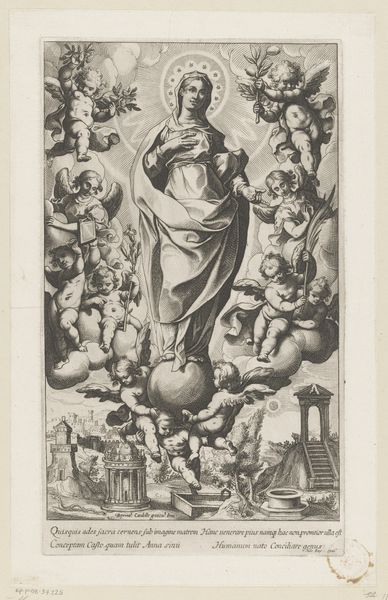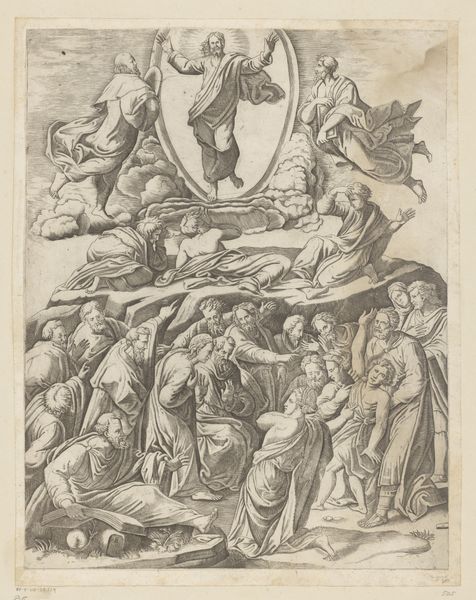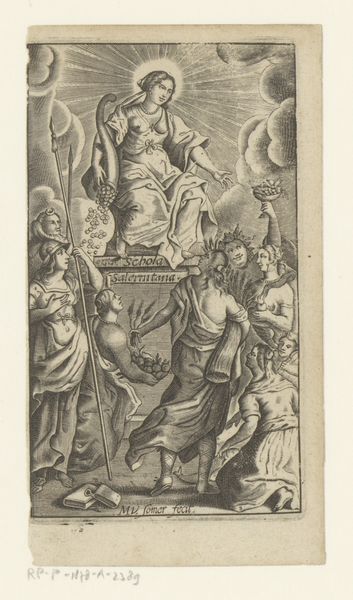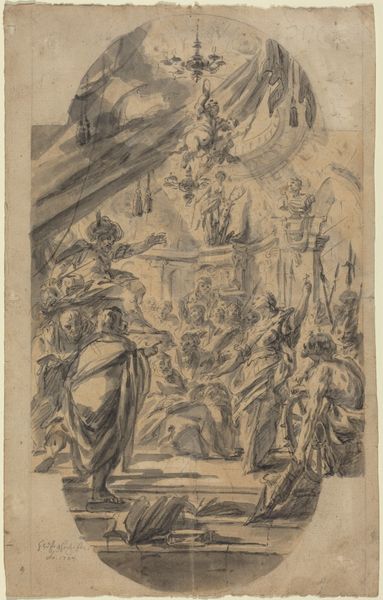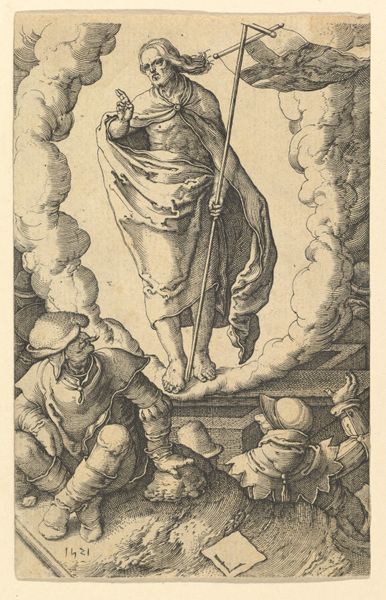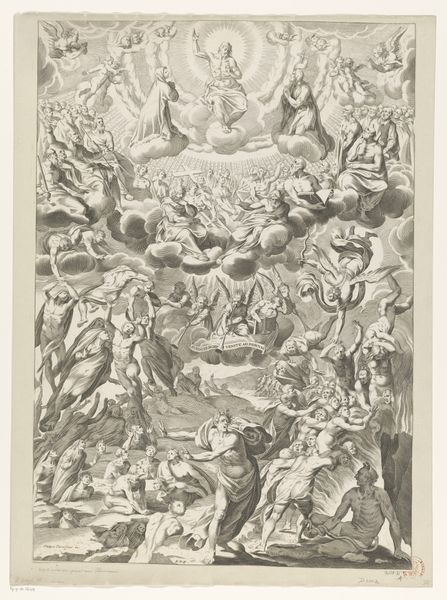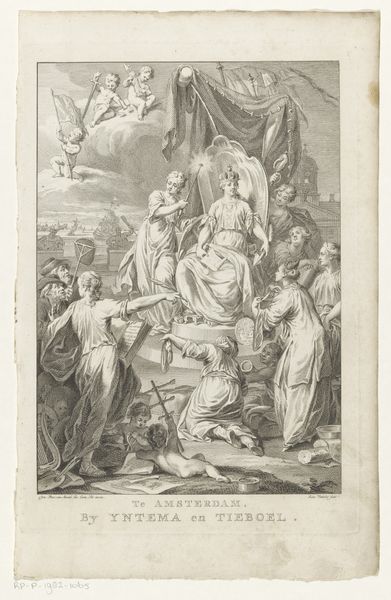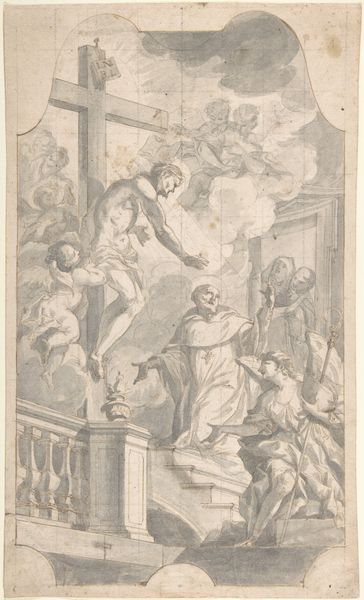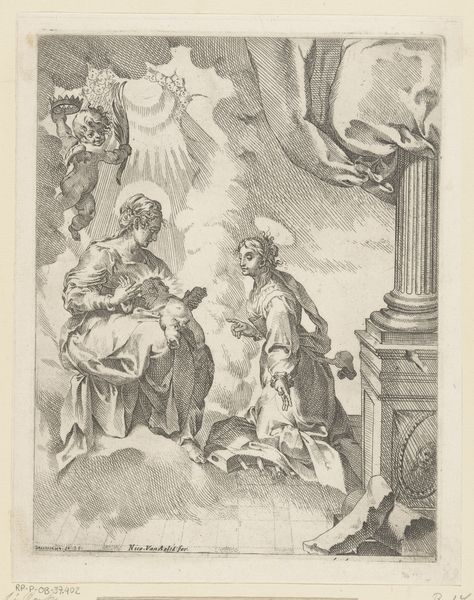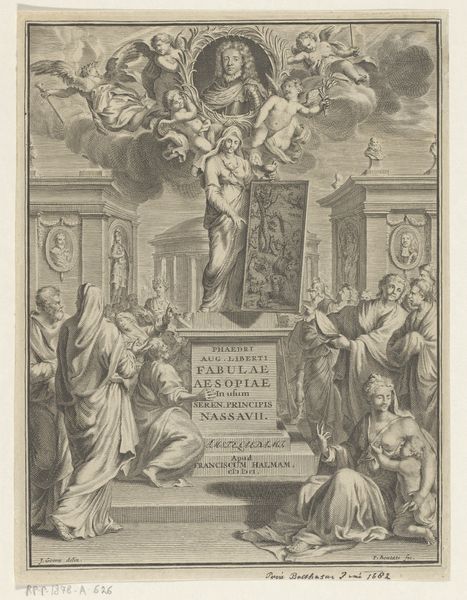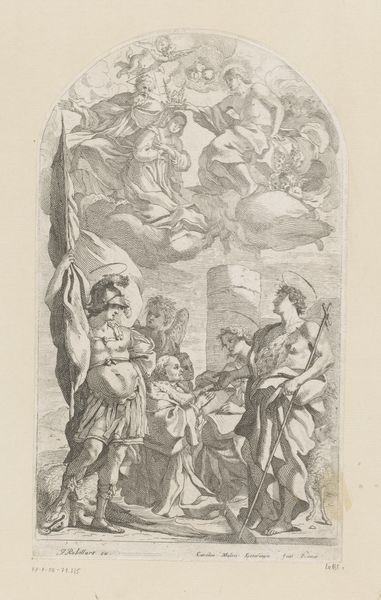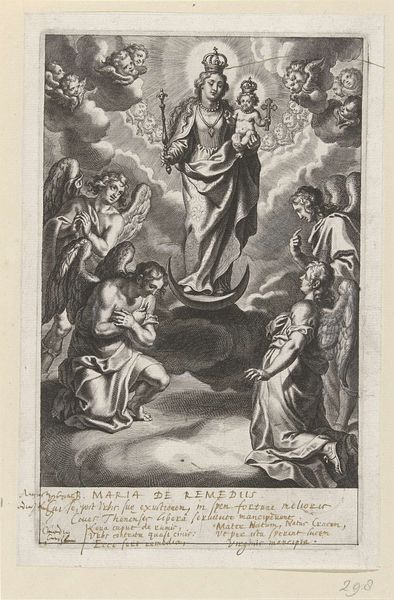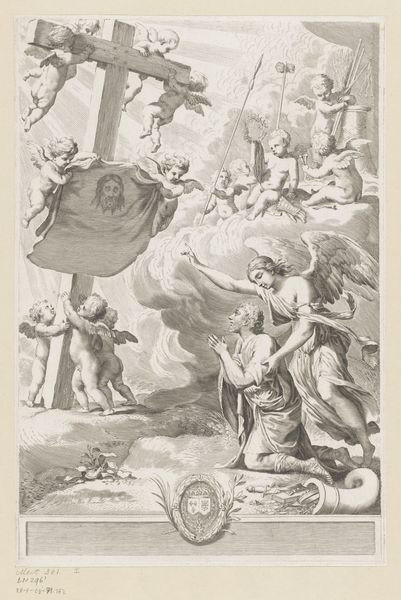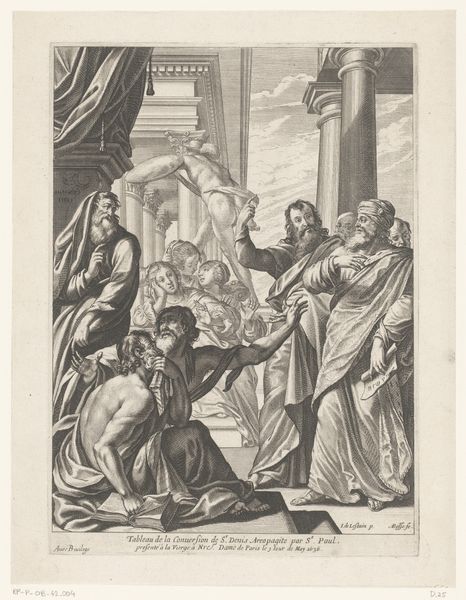
print, engraving
#
allegory
#
baroque
# print
#
old engraving style
#
figuration
#
ink drawing experimentation
#
history-painting
#
engraving
Dimensions: height 344 mm, width 195 mm
Copyright: Rijks Museum: Open Domain
Raffaello Schiaminossi made this engraving of Maria van de Onbevlekte Ontvangenis, or Mary of the Immaculate Conception, around the turn of the 17th century. The process of engraving involves using a tool called a burin to cut lines into a metal plate, which is then inked and printed. Consider the labor involved: each line you see was manually carved. Schiaminossi would have needed not just artistic skill, but also the physical strength and control to guide the burin accurately. The fineness of the lines speaks to the level of expertise he had acquired. Think about the social context, too. Engravings like this one were often made in multiples, and sold as a relatively affordable way for people to own religious imagery. The printmaking trade allowed artists like Schiaminossi to disseminate their work widely, and to participate in a burgeoning market for art. By valuing the craft of engraving, we can see this image not just as a devotional object, but also as a product of its time, shaped by the demands of labor and the dynamics of artistic production.
Comments
No comments
Be the first to comment and join the conversation on the ultimate creative platform.
